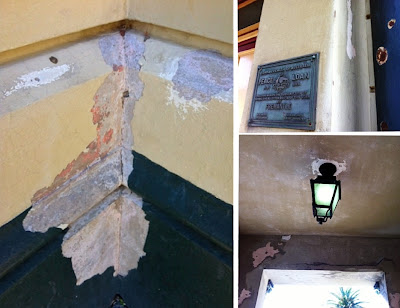Welcome to the third edition of some cool quotes about cities.
First up is Lorne Daniel:
"Diversity makes a neighbourhood both functional and interesting for people on foot. Density drives that diversity because population density ensures there is a market for diverse retail, social, educational and other options...Our neighbourhood features a number of small boutique shops – one just carrying designer rain wear (we do live on the edge of a rainforest) – serving a niche market. The city needs enough population density to support those niche retailers. Of course, the more such unique stores can thrive, the more they in turn create the ambience that people want. The street becomes diverse and interesting – a destination – for more and more people."
"Diversity makes a neighbourhood both functional and interesting for people on foot. Density drives that diversity because population density ensures there is a market for diverse retail, social, educational and other options...Our neighbourhood features a number of small boutique shops – one just carrying designer rain wear (we do live on the edge of a rainforest) – serving a niche market. The city needs enough population density to support those niche retailers. Of course, the more such unique stores can thrive, the more they in turn create the ambience that people want. The street becomes diverse and interesting – a destination – for more and more people."
Lorne's quote is from an article in which he chews the fat about what a walkable city really is. The article makes for a great read - pour yourself a nice cooling homemade iced tea and enjoy. I did.
Next up is Marcus Westbury:
"The most basic point at which cities, towns, communities and streets that are failing is often that they fail to fail enough. They become immune to experimentation and innovation and instead get stuck in a binary distinction between 'the big solution' and 'the status quo.'"
Next up is Marcus Westbury:
"The most basic point at which cities, towns, communities and streets that are failing is often that they fail to fail enough. They become immune to experimentation and innovation and instead get stuck in a binary distinction between 'the big solution' and 'the status quo.'"
I don my cap to Marcus after that ripper of a quote. I took this quote from a blog post in which Marcus outlines his ideas about iterative urbanism. It is well worth reading.
Last but not least is a passage from 'Notes from a Small Island' by Bill Bryson:
"Calais is an interesting place that exists solely for the purpose of giving English people in shell suits somewhere to go for the day. Because it was heavily bombed in the war, it fell into the hands of post-war planners and in consequence looks like something left over from a 1957 Exposition du Cement. An alarming number of structures in the centre, particularly around the cheerless Place d'Armes, seem to have been modelled on supermarket packaging, primarily packets of Jacob's Cream Crackers. A few structures are even built across roads - always a sign of 1950s planners smitten with the novel possibilities of concrete."
Last but not least is a passage from 'Notes from a Small Island' by Bill Bryson:
"Calais is an interesting place that exists solely for the purpose of giving English people in shell suits somewhere to go for the day. Because it was heavily bombed in the war, it fell into the hands of post-war planners and in consequence looks like something left over from a 1957 Exposition du Cement. An alarming number of structures in the centre, particularly around the cheerless Place d'Armes, seem to have been modelled on supermarket packaging, primarily packets of Jacob's Cream Crackers. A few structures are even built across roads - always a sign of 1950s planners smitten with the novel possibilities of concrete."
I'm working on a theory that Bryson is one of our great philosophers on the subject of citites. I always enjoy reading about his insights into the urban world. In this quote Bryson describes an era of development that should be studied so as to ensure that we don't go down a similar path again. Let's start issuing his books to architects, town planners, urban designers and developers post haste!
That's it for this edition of some cool quotes about cities.
That's it for this edition of some cool quotes about cities.
I've added Marcus' blog and Lorne's website "Rethink Urban" to my list of links as well. They're both valuable resources for the town planning and placemaking nerd.















